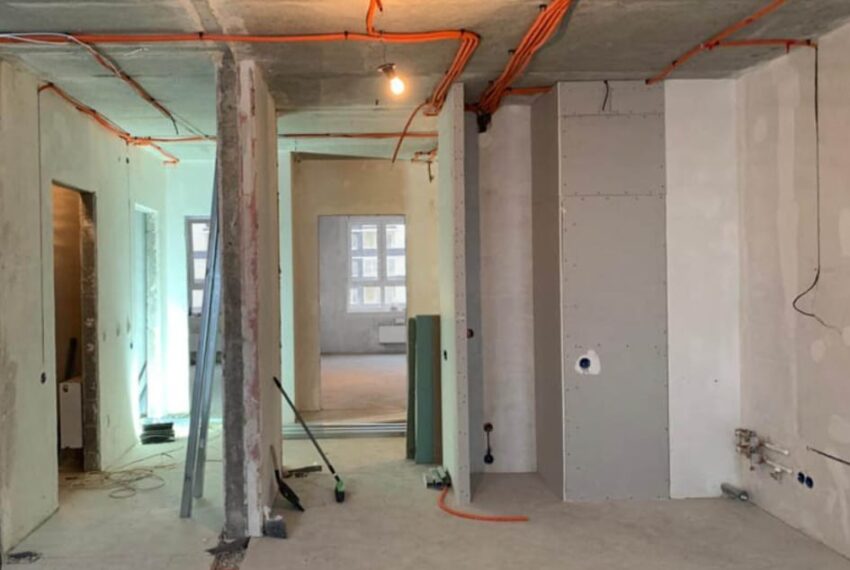
Renovating a flat in Spain, especially in popular cities such as Alicante, requires certain regulations and permits. Whether it is a major renovation or a cosmetic one, it is important to understand what can be carried out without permits and which ones require official approval.
Types of renovations and required permits
1. Cosmetic repairs: These include painting walls, replacing floors, and installing new windows and doors. Such repairs do not require permits if the load-bearing structures and utility systems are not affected. However, it is sometimes advisable to notify neighbours to avoid noise complaints.
2. Major repairs and alterations: If alterations are planned, such as changing walls, creating new openings or reconfiguring rooms, a building permit (Licencia de Obras) will be required. This applies to major works that may affect the structure of the building.
3. Repairs that alter the façade or appearance of the building: If windows or balcony structures are to be replaced, this may also require authorisation. Some areas of Alicante have strict rules regarding the appearance of buildings and changes to the façade require approval from the local authorities.
4. Alterations to utility systems: A licence is also required to replace or upgrade electrical, plumbing and ventilation systems. As such works can affect the safety and quality of living in the house, they require compliance with regulations and control by the authorities.
How do I get a licence for renovations?
1- Go to the City Hall (Ayuntamiento): In Alicante, to apply for a repair licence go to the local municipal services department.
2. Prepare a project: Major changes and alterations require a project by a licensed architect. This project must describe the planned works, their impact on the structure of the building and compliance with safety standards.
3. Submission of the application: Once the design has been developed, it is submitted to the Town Hall with an application for a licence. The application usually takes from a few weeks to several months to be processed, depending on the scale of the works and the workload of the administrative services.
4- Payment of Fee: An administrative fee is charged for the application and review, which varies depending on the scale of the project.
What can and cannot be broken in a flat?
When planning a redevelopment, it is important to take into account that almost all walls can be broken, with the exception of load-bearing structures (columns and load-bearing walls). Load-bearing walls are critical elements of a building’s structure, and their demolition can have serious consequences for both the safety of the occupants and the stability of the building as a whole.
In general terms:
It is permitted to break down partitions that do not carry a load (e.g. walls between rooms) and change their location.
It is forbidden to touch load-bearing columns, walls and other elements that support the building. These structures not only ensure the stability of the entire house, but are also connected to other floors.
Before starting renovations, especially if demolition of walls is planned, it is advisable to engage a specialist who will be able to determine exactly which walls are load-bearing. In Spain, an architect or engineer is often hired to do this, as incorrectly identifying the type of wall can have serious consequences.
Penalties for breach of repair regulations
If repairs in Alicante are carried out without the proper permits, this can result in fines. In addition, once violations are discovered, the flat may be required to be restored to its original condition at the owner’s expense. Fines range from a few hundred to thousands of euros, depending on the severity of the violation and the degree of impact on the building.
Conclusion
When renovating a flat in Alicante, it is important to follow the rules and obtain all the necessary permits, especially if changes affecting load-bearing structures or engineering systems are planned. All non-load-bearing walls can be broken, but it is worth consulting a specialist before starting work to ensure that the project complies with local regulations.
